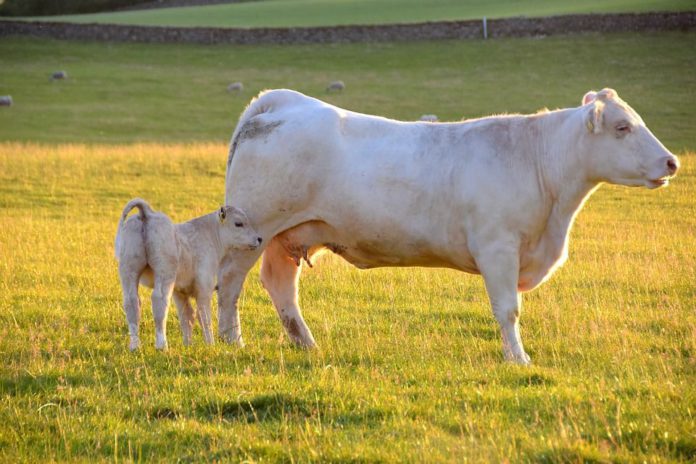“I think there is a very strong future for suckler farming in Ireland. It’s a very important industry.”
“We have 70,000 suckler farmers in the country. They produce a very high-quality product and make an important contribution to every parish in rural Ireland.”
Those are the words of the new Teagasc Director, Professor Frank O’ Mara, who has outlined his vision for Ireland’s suckler sector.
This comes following remarks former director, Gerry Boyle, made in recent weeks in relation to dairy-beef production.
At an event, Boyle said: “We are very strongly advocating that we shift from beef cow production to what we call dairy-beef production.”
He apologised for causing “such considerable annoyance and offence” to beef producers and advisory colleagues.
Boyle said he “profoundly regrets” his “unscripted response” to a question at a recent Dublin Economics Workshop.
Suckler farmers in Ireland
In a statement, the new director said: “Teagasc will continue to strongly support the suckler industry through our research, advisory and education programmes.”
“There is a lot of demand for that product. Certainly, it’s challenged by profitability, but it’s a very resilient sector.”
“My colleagues and I look forward to working with beef farmers and others to develop our vision and programmes.”
New Future Beef Programme and new researchers
Furthermore, Teagasc will introduce a new Knowledge Transfer programme – a Future Beef Programme – to support sustainable suckler production this year.
The new Teagasc beef demonstration farm programme will comprise 22 suckler and beef farms s throughout its 12 advisory regions.
A Teagasc cattle specialist will manage the programme. Each will have two full-time Teagasc beef advisors working on it for the next five years.
Professor O’ Mara outlined the research support for the suckler-beef sector: “We have just appointed two new researchers at the Teagasc beef research centre in Grange.”
“We have committed significant resources to support suckler beef producers, and that will continue.”
“We have the Derrypatrick and maternal suckler herds in Grange and the demonstration suckler herd in Newford, Athenry. Also, we have suckler herds at each of the Teagasc colleges.”
Improve efficiency
Also, chairman of the Teagasc Authority, Liam Herlihy, also addressed concerns beef farmers raised in recent weeks.
“Teagasc policy is to support all farmers with the enterprise and production system they select for their farm by providing them with the information they need based on the best possible independent research.”
“Changing enterprise is a decision for the farmer. Our advisors work with farmer clients to improve the efficiency of their existing drystock enterprises.”
“In the case of suckler beef production, this means a focus on using better genetics, improving grassland management, addressing animal health issues, and delivering better financial and environmental results.”
“The Teagasc Authority remains committed to suckler beef farmers and to making the necessary investments in research, education and advisory to deliver the services we provide to cattle producers.”
He said its policy is to carry out quality, independent research to support farmers and the beef sector.
He committed to working with farmers and other stakeholders proactively for the betterment of Irish agriculture.
“Teagasc recognises the important contribution the Irish suckler herd makes to the agri-food sector and wider economy,” the state agency outlined in the statement.





